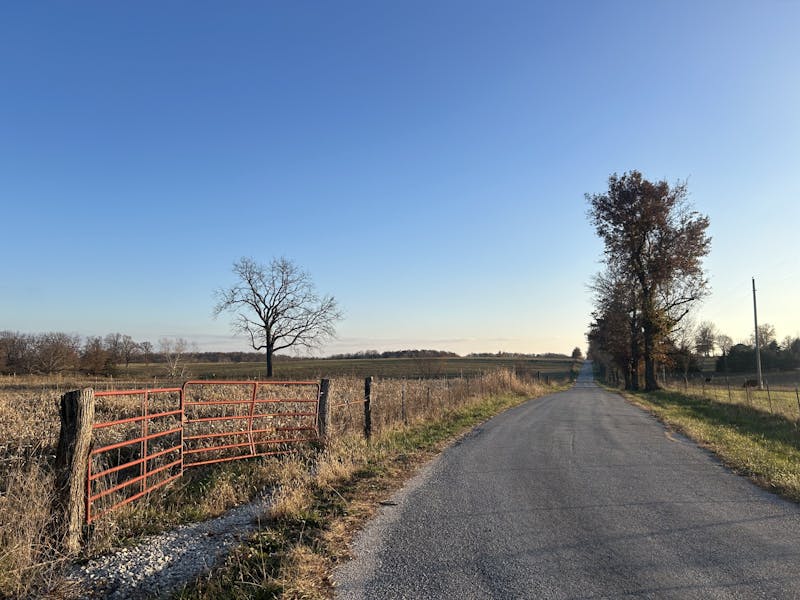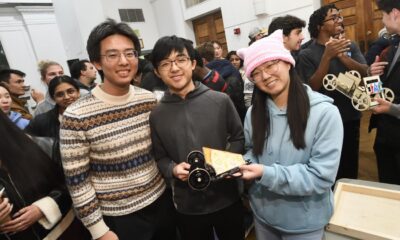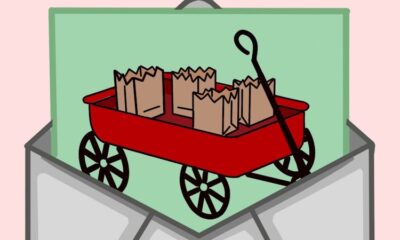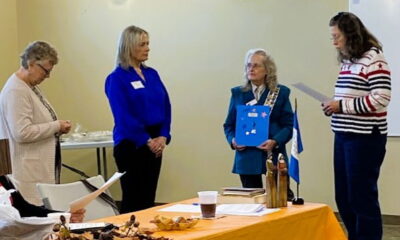Science
Missing Peacocks Spark Reflections on Loss and Memory

In rural southwest Missouri, a unique phenomenon unfolded when the local population of peacocks vanished without much notice. This unexpected absence has prompted reflections on loss and memory from those who once regarded these vibrant birds as a common part of their lives. Riley Strait, a sophomore studying Writing Seminars and English at Johns Hopkins University, shares his personal connection to these peacocks in his poignant narrative.
The peacocks, which had roamed freely in the town, were once a source of frustration for residents. Their striking beauty was often overshadowed by their disruptive behavior, as they pecked at car doors and harassed visitors at local facilities. The city decided to relocate these feral peacocks, a move that went largely unnoticed by many, including Strait, who frequently visited his grandmother in the area.
Reflecting on his childhood memories, Strait recalls the peacocks with a mix of nostalgia and regret. He notes, “When something so constant suddenly disappears, it’s the same as if it were still there.” Despite not initially registering their absence, the peacocks embodied a kind of magic that he had come to appreciate, representing a unique charm in a place where beauty often seemed scarce.
Strait emphasizes the emotional complexity of reminiscing about the missing birds. He describes the sensation as “bittersweet,” a feeling that combines awe and dread, suggesting that if given the chance, he would approach past moments differently. This emotional struggle resonates within his poetry, where he grapples with conveying genuine feelings while maintaining a sense of distance.
In his writing, Strait confronts the challenge of articulating personal truths. He candidly admits that he finds it easier to share intimate details in a journalistic context than in poetry. “I don’t know why I’m a cagey poet but an over-sharing journalist,” he writes, revealing the tension between vulnerability and self-protection in creative expression.
As he navigates this duality, Strait reflects on the significance of the peacocks’ removal. Their absence serves as a metaphor for broader themes of loss and the fleeting nature of beauty. “Those peacocks — bright, beautiful creatures — spoke to a kind of magic that I wanted to believe could grace places where little else is going well,” he states, underscoring the emotional weight of their departure.
Strait’s narrative serves not only as a personal reflection but also as a commentary on the human tendency to overlook the beauty in our surroundings until it is gone. The peacocks, once a nuisance, became emblematic of the delicate balance between appreciation and neglect in everyday life.
The story reflects broader societal themes, inviting readers to consider what it means to hold onto memories and the profound impact of seemingly mundane aspects of life. In a world that often prioritizes the extraordinary, Strait’s poignant observations remind us to cherish the small wonders that enrich our lives, even when they slip quietly into the background.
Ultimately, the tale of the peacocks resonates as a call to acknowledge and celebrate the transient beauty that exists around us, encouraging deeper connections to the places we call home.
-

 Technology5 months ago
Technology5 months agoDiscover the Top 10 Calorie Counting Apps of 2025
-

 Technology2 weeks ago
Technology2 weeks agoOpenAI to Implement Age Verification for ChatGPT by December 2025
-

 Health3 months ago
Health3 months agoBella Hadid Shares Health Update After Treatment for Lyme Disease
-

 Health3 months ago
Health3 months agoErin Bates Shares Recovery Update Following Sepsis Complications
-

 Health3 months ago
Health3 months agoAnalysts Project Stronger Growth for Apple’s iPhone 17 Lineup
-

 Technology5 months ago
Technology5 months agoDiscover How to Reverse Image Search Using ChatGPT Effortlessly
-

 Technology3 months ago
Technology3 months agoElectric Moto Influencer Surronster Arrested in Tijuana
-

 Technology2 months ago
Technology2 months agoDiscover 2025’s Top GPUs for Exceptional 4K Gaming Performance
-

 Technology5 months ago
Technology5 months agoMeta Initiates $60B AI Data Center Expansion, Starting in Ohio
-

 Technology5 months ago
Technology5 months agoRecovering a Suspended TikTok Account: A Step-by-Step Guide
-

 Health5 months ago
Health5 months agoTested: Rab Firewall Mountain Jacket Survives Harsh Conditions
-

 Lifestyle5 months ago
Lifestyle5 months agoBelton Family Reunites After Daughter Survives Hill Country Floods





















